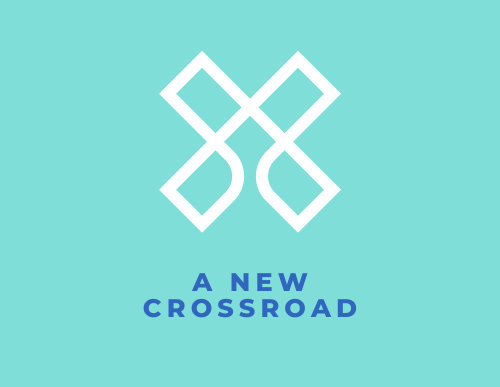A New Crossroad in Powdersville, SC: Your Destination for Treatment
When seeking comprehensive mental health, behavioral health, and substance abuse treatment, A New Crossroad in Powdersville, SC is a destination worth considering. This facility offers a range of specialized services to meet the diverse needs of individuals seeking help.
Comprehensive Mental Health Services
A New Crossroad provides comprehensive mental health services to address a variety of conditions. They offer evidence-based treatments for common mental health disorders such as ADHD, anxiety, bipolar disorder, depression, and PTSD. Their experienced team of professionals is committed to providing compassionate care and helping individuals achieve optimal mental well-being.
Specialized Behavioral Health Treatment
Behavioral health plays a crucial role in overall well-being and recovery. A New Crossroad offers specialized behavioral health treatment to address a wide range of behavioral issues. They provide individualized care plans tailored to the unique needs of each patient. From addiction to behavioral disorders, their team is dedicated to providing effective treatment and support.
Effective Substance Abuse Treatment
A New Crossroad is known for its effective substance abuse treatment programs. They understand the challenges individuals face when dealing with addiction and offer comprehensive programs that combine evidence-based practices with personalized care. Their suboxone clinic and suboxone doctors provide medication-assisted treatment, which has been shown to be highly effective in reducing opioid use and supporting long-term recovery (Mayo Clinic). The combination of medication and therapy has been found to be particularly beneficial in addressing opioid addiction.
Choosing A New Crossroad in Powdersville, SC means gaining access to comprehensive mental health services, specialized behavioral health treatment, and effective substance abuse treatment. Their integrated approach to care ensures that individuals receive the support and resources needed for their journey towards healing and recovery. To learn more about their services and how they can help, visit their website or reach out to their dedicated team today.
Why Choose A New Crossroad?
When seeking treatment for opioid addiction or other mental health and behavioral health concerns, it’s important to choose a trusted and reliable provider. A New Crossroad in Powdersville, SC offers several compelling reasons why individuals should consider their services.
Expertise in Opioid Addiction Treatment
A New Crossroad has extensive expertise in providing effective treatment for opioid addiction. They understand the complexities of addiction and are equipped with the knowledge and experience to guide individuals on their path to recovery. Their team of healthcare professionals, including suboxone doctors, are trained in evidence-based practices for opioid addiction treatment.
Through their expertise, A New Crossroad can tailor treatment plans to address the unique needs of each individual. They recognize that there is no one-size-fits-all approach to addiction treatment and are committed to providing personalized care.
Accessible and Convenient Care
Access to medication-assisted treatment (MAT) for opioid addiction can be limited in many areas, particularly in rural regions. However, A New Crossroad aims to bridge this gap by offering accessible and convenient care. Located in Powdersville, SC, they provide a central location for individuals seeking treatment in the surrounding areas.
Moreover, A New Crossroad recognizes the importance of increasing access to treatment through telemedicine and telehealth technologies. These technologies enable individuals to receive necessary care remotely, especially in rural and underserved areas (PubMed). By utilizing these methods, A New Crossroad strives to ensure that individuals have access to the care they need, regardless of their location.
Integrated Approach to Treatment
A New Crossroad takes an integrated approach to treatment, recognizing that a combination of medication, psychosocial interventions, and support services is the most effective way to address opioid addiction (PubMed). They offer comprehensive mental health services, specialized behavioral health treatment, and effective substance abuse treatment to address the diverse needs of their patients.
By integrating these various treatment modalities, A New Crossroad provides a holistic approach to recovery. They understand that addressing the underlying mental health and behavioral health issues is crucial to long-term success. Through counseling, therapy, and evidence-based interventions, they help individuals develop coping strategies, build resilience, and make positive changes in their lives.
Choosing A New Crossroad means choosing a provider with expertise in opioid addiction treatment, accessible and convenient care, and an integrated approach to treatment. With their commitment to individualized care and comprehensive services, A New Crossroad can support individuals on their journey to recovery. Whether it’s adhd treatment, anxiety treatment, bipolar disorder treatment, alcohol abuse treatment, depression treatment, ptsd treatment, or other mental health and behavioral health concerns, A New Crossroad is dedicated to helping individuals find a new path towards wellness.
Medication-Assisted Treatment: A Key Component
In the comprehensive approach to opioid addiction treatment, medication-assisted treatment (MAT) plays a vital role. MAT combines the use of medications with counseling and behavioral therapies to address the complex nature of opioid addiction. It has been shown to be highly effective in helping individuals achieve and sustain recovery. Let’s explore two common medications used in MAT: Methadone Maintenance Treatment (MMT) and buprenorphine.
Methadone Maintenance Treatment (MMT)
Methadone is a full mu-opioid receptor agonist and is widely used as a replacement therapy for heroin or other opioid dependence. It can be used as a maintenance therapy or a detoxification agent. Methadone helps to alleviate withdrawal symptoms and reduce cravings, allowing individuals to focus on their recovery journey. It has a longer duration of action compared to other opioids, which helps in preventing withdrawal symptoms throughout the day (NCBI).
MMT is considered the gold standard for opioid addiction treatment due to its proven effectiveness. It has been shown to reduce illicit opiate use, decrease criminal activity, and improve overall health outcomes for individuals with opioid dependence (NCBI).
Buprenorphine: A Partial Agonist
Buprenorphine, another commonly used medication in MAT, is a partial agonist of mu-opioid receptors. It offers several advantages over methadone, including a lower risk of overdose and a milder withdrawal syndrome. Buprenorphine can be used for both maintenance and detoxification purposes. It is a Schedule III drug in the US and has a slower onset and longer duration of action compared to methadone (NCBI).
Studies have shown that buprenorphine maintenance is superior to placebo and produces mixed results when compared to methadone maintenance. Higher doses of both methadone and buprenorphine have been associated with decreased illicit opiate use and increased retention in treatment (NCBI).
The Benefits of Medication-Assisted Treatment
Medication-assisted treatment offers several benefits for individuals seeking recovery from opioid addiction. Some of the key advantages include:
- Reduced cravings and withdrawal symptoms: Medications used in MAT help to alleviate cravings and withdrawal symptoms, making it easier for individuals to focus on their recovery journey.
- Improved treatment retention: MAT has been associated with increased treatment retention rates, ensuring individuals stay engaged in the recovery process for longer durations.
- Reduced illicit drug use: Medications used in MAT have been shown to decrease illicit opiate use, helping individuals break the cycle of addiction.
- Lower risk of overdose: MAT reduces the risk of overdose by stabilizing individuals on a controlled medication regimen.
- Improved overall health outcomes: MAT supports individuals in achieving better overall health outcomes by addressing both the physical and psychological aspects of addiction.
It is important to note that medication-assisted treatment is most effective when combined with counseling and therapy (therapy and counseling). The combination of medication and therapy provides a comprehensive approach to addressing the underlying causes of addiction and supporting long-term recovery.
Choosing the right treatment approach, including the appropriate medication, should be done in consultation with a healthcare professional experienced in addiction medicine. A New Crossroad in Powdersville, SC offers expert care and an integrated approach to opioid addiction treatment. Their team of professionals can guide individuals in selecting the most suitable medication-assisted treatment option for their specific needs.
Counseling and Therapy for Recovery
When it comes to opioid addiction treatment, counseling and therapy play a crucial role in helping individuals on their journey to recovery. These therapeutic interventions address the underlying emotional and psychological factors contributing to addiction and provide individuals with the necessary tools and support for long-term success.
The Importance of Counseling in Opioid Addiction Treatment
Counseling is an essential component of Suboxone treatment for opioid addiction. It is designed to help individuals address the root causes of their addiction, such as past traumas, emotional triggers, and mental health issues. By working with a trained counselor, individuals can gain insight into their addictive behaviors and develop healthier coping mechanisms (National Addiction Specialists).
Through counseling, individuals with opioid use disorder (OUD) can explore the emotional aspects of their addiction, learn to manage cravings and triggers, and develop strategies for relapse prevention. Counseling provides a safe and supportive environment where individuals can openly discuss their challenges, fears, and goals. It helps them build self-awareness, develop new perspectives, and cultivate resilience in their recovery journey.
Behavioral Therapies for Opioid Addiction
Behavioral therapies are highly effective in treating opioid addiction. Therapeutic approaches such as Cognitive-Behavioral Therapy (CBT) and Contingency Management have been proven to help individuals identify and change harmful thought patterns and behaviors associated with drug use. These evidence-based therapies empower individuals to develop healthy coping skills, build problem-solving abilities, and enhance their self-control.
Cognitive-Behavioral Therapy (CBT) helps individuals reframe negative thoughts and beliefs, challenge self-destructive behaviors, and develop healthier coping strategies. It teaches individuals to identify triggers and develop alternative responses to stress, cravings, and other challenges commonly encountered during recovery.
Contingency Management is a behavioral therapy that uses positive reinforcement to motivate individuals to remain drug-free. It involves providing rewards or incentives for achieving specific treatment goals, such as clean drug tests or attendance at counseling sessions. This approach can be highly effective in promoting abstinence and encouraging individuals to engage actively in their recovery process.
Family Therapy for Support and Healing
Family therapy is an integral part of opioid addiction treatment, as it acknowledges the impact addiction can have on the entire family system. It provides an opportunity for family members to come together, heal, and rebuild relationships that may have been strained or damaged by addiction. Family therapy sessions educate loved ones about addiction, enhance communication skills, and create a supportive environment for the individual in recovery (LinkedIn).
By involving family members in the treatment process, family therapy aims to improve understanding, foster empathy, and promote healthy boundaries. It helps family members gain insight into the challenges faced by the individual with OUD and equips them with effective strategies to provide support during the recovery journey. Family therapy can play a significant role in reducing relapse rates and facilitating long-term recovery.
Counseling and therapy are essential components of opioid addiction treatment. They address the psychological and emotional aspects of addiction, provide individuals with coping skills and support, and empower them to make lasting changes in their lives. When combined with medication-assisted treatment, counseling and therapy create a comprehensive approach that increases the chances of successful recovery and long-term sobriety.
The Effectiveness of Medication and Therapy
When it comes to treating opioid addiction, a combination of medication and therapy has been shown to be highly effective in promoting successful recovery and reducing the risks associated with opioid use disorder (OUD). This section will explore the outcomes of medication-assisted treatment, the potential for long-term recovery with medication and therapy, and the important role that medication and therapy play in opioid addiction treatment.
Medication-Assisted Treatment Outcomes
Medication-assisted treatment (MAT) using agonist medication, such as methadone or buprenorphine, has been associated with significant positive outcomes for individuals with OUD. According to NCBI Bookshelf, treatment with agonist medication is linked to an estimated mortality reduction of approximately 50 percent among people with OUD. Both methadone and buprenorphine treatment retention have been shown to substantially decrease the risks of all-cause and overdose-related mortality among individuals with OUD.
In addition to reducing mortality rates, treatment with methadone or buprenorphine is associated with lower rates of other opioid use, improved social functioning, decreased injection drug use, reduced risk of HIV transmission and hepatitis C virus (HCV) infection, and better quality of life compared to individuals with OUD who are not in treatment (NCBI Bookshelf). Methadone treatment has also been linked to reduced levels of criminality for individuals with OUD.
Long-Term Recovery with Medication and Therapy
The combination of medication and therapy has shown promising results in achieving long-term recovery from opioid addiction. According to National Addiction Specialists, Suboxone treatment, which combines medication (buprenorphine) and therapy, has been found to be more effective than medication alone in reducing opioid use and promoting successful recovery. Counseling and therapy provide individuals with coping skills, relapse prevention strategies, and support to maintain long-term recovery after completing Suboxone treatment.
Therapy sessions provide a safe space for individuals to explore their thoughts, emotions, and experiences related to addiction, supporting self-reflection and personal growth (LinkedIn). Behavioral therapies, such as Cognitive-Behavioral Therapy (CBT) and Contingency Management, have been found to be highly effective in treating OUD by helping individuals identify and change harmful thought patterns and behaviors associated with drug use (LinkedIn).
The Role of Medication and Therapy in Opioid Addiction Treatment
In the treatment of opioid addiction, the combination of medication, psychosocial interventions, and support services is considered the most effective approach. Medications used in opioid addiction treatment, such as methadone or buprenorphine, work by reducing cravings and withdrawal symptoms, allowing individuals to gradually taper off opioid use while minimizing discomfort (Mayo Clinic).
Behavioral therapy, counseling, and therapy sessions complement medication-assisted treatment by helping individuals develop coping skills, make lifestyle changes, and address the underlying issues contributing to their addiction. They provide support, education, and guidance throughout the recovery process, ultimately promoting long-term recovery and reducing the risk of relapse (Mayo Clinic).
By combining medication and therapy, individuals with opioid addiction can benefit from a comprehensive and integrated treatment approach that addresses both the physical and psychological aspects of their addiction. This combination has the potential to improve outcomes, enhance recovery, and provide individuals with the tools and support needed to achieve and maintain a drug-free life.
Choosing the Right Treatment Setting
When it comes to seeking treatment for opioid addiction, choosing the right treatment setting is crucial for successful recovery. A New Crossroad in Powdersville, SC offers various treatment options to cater to individuals’ unique needs. Let’s explore the different treatment settings available: outpatient programs, residential treatment centers, and hospital-based treatment.
Outpatient Programs
Outpatient programs provide flexibility for individuals seeking treatment for opioid addiction. These programs allow patients to receive treatment while still maintaining their daily responsibilities and routines. This can be particularly beneficial for those who have work or family commitments.
At A New Crossroad, outpatient programs offer regular therapy sessions, counseling, and medication management. Patients have the opportunity to work closely with healthcare professionals to address their addiction, develop coping strategies, and make positive changes in their lives. Outpatient programs provide a supportive environment that encourages individuals to actively participate in their recovery journey.
Residential Treatment Centers
Residential treatment centers, also known as inpatient treatment centers, provide a structured and supportive environment for individuals seeking intensive treatment for opioid addiction. These centers offer a comprehensive range of services, including counseling, therapy, and medication management.
At A New Crossroad’s residential treatment centers, individuals reside at the facility for the duration of their treatment. This allows for round-the-clock support and monitoring by healthcare professionals. The immersive nature of residential treatment centers provides individuals with a focused environment where they can solely concentrate on their recovery.
Hospital-Based Treatment
Hospital-based treatment programs are designed for individuals requiring a higher level of care due to the severity of their opioid addiction. These programs are typically offered in hospitals and provide a multidisciplinary approach to treatment.
A New Crossroad’s hospital-based treatment programs combine medical management, counseling, and therapy to address the physical, psychological, and emotional aspects of opioid addiction. These programs may be suitable for individuals with co-occurring medical conditions or those who require close medical supervision during the detoxification process.
When choosing the right treatment setting at A New Crossroad, it’s important to consider individual needs, preferences, and the level of support required for successful recovery. The healthcare professionals at A New Crossroad can help guide individuals in selecting the most appropriate treatment setting based on their unique circumstances.
By providing a range of treatment options, A New Crossroad aims to ensure that individuals receive the care and support they need on their journey to recovery from opioid addiction. Remember, seeking treatment is a courageous step towards a healthier and happier life. For more information on treatment options and to explore other mental health and behavioral health services, visit A New Crossroad’s website on mental health, behavioral health, and therapy.
Counseling and Therapy for Recovery
Seeking counseling and therapy is an essential component of effective opioid addiction treatment. At A New Crossroad in Powdersville, SC, we recognize the importance of providing comprehensive care that addresses both the physical and psychological aspects of addiction recovery. Our team of experienced professionals is dedicated to supporting individuals on their journey towards lasting sobriety.
The Importance of Counseling in Opioid Addiction Treatment
Counseling plays a crucial role in helping individuals with opioid use disorder (OUD) address the underlying emotional and psychological factors that contribute to addiction. According to National Addiction Specialists, counseling helps individuals explore past traumas, emotional triggers, and mental health issues that may have led to their addiction. By addressing these underlying issues, individuals can gain a deeper understanding of themselves and develop healthier coping mechanisms.
Therapy sessions provide a safe and non-judgmental space for individuals to express their thoughts, emotions, and experiences related to addiction. Through self-reflection and personal growth facilitated by therapy, individuals can gain valuable insights into their addictive behaviors and work towards making positive changes in their lives.
Behavioral Therapies for Opioid Addiction
Behavioral therapies are highly effective in treating opioid use disorder. Therapeutic approaches such as Cognitive-Behavioral Therapy (CBT) and Contingency Management have shown promising results in helping individuals identify and change harmful thought patterns and behaviors associated with drug use. These therapies aim to develop skills for relapse prevention, stress management, and healthier decision-making.
By working closely with our experienced therapists, individuals at A New Crossroad can benefit from evidence-based behavioral therapies tailored to their unique needs. Our therapists provide guidance, support, and practical tools to empower individuals in their recovery journey.
Family Therapy for Support and Healing
Addiction not only affects the individual struggling with it but also has a profound impact on their loved ones. Family therapy can be a valuable component of opioid addiction treatment, as it helps repair relationships, educates family members about addiction, and creates a supportive environment for recovery. Through family therapy sessions, families can learn healthy communication strategies, develop understanding and empathy, and rebuild trust.
At A New Crossroad, we recognize the importance of involving family members in the recovery process. Our therapists provide family therapy sessions as part of our comprehensive treatment approach, ensuring that individuals receive the support they need from their loved ones.
By integrating counseling and therapy into opioid addiction treatment, individuals at A New Crossroad can address the psychological, emotional, and interpersonal aspects of their addiction. The combination of medication-assisted treatment and therapy has been shown to be more effective than medication alone in reducing opioid use and promoting successful recovery (National Addiction Specialists). With our team of compassionate professionals, individuals can find the support and guidance they need to achieve lasting recovery from opioid addiction.





